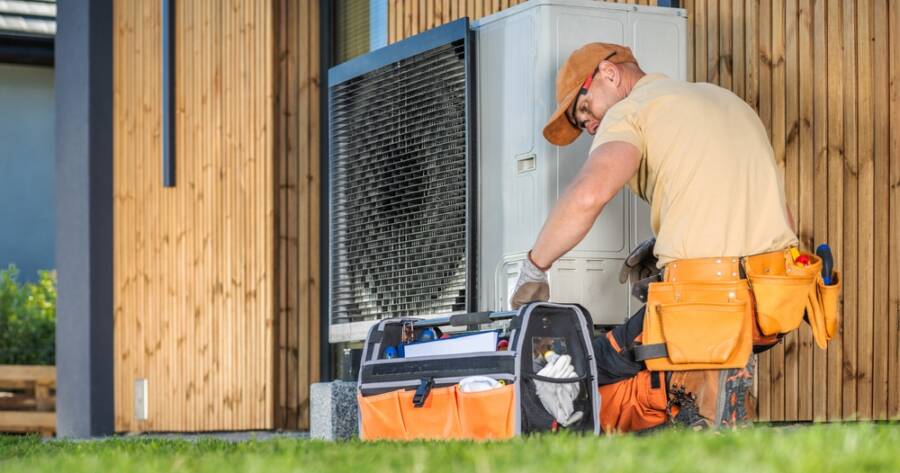Keeping your home warm during colder months is essential for your comfort and health. However, the costs of maintaining and repairing heating systems can sometimes feel overwhelming. That’s why exploring affordable heating maintenance and repair services is crucial for homeowners who want reliable solutions without breaking the bank. In this article, we’ll discuss why regular maintenance matters, how to find trustworthy professionals, and ways to ensure your heating system operates efficiently and affordably.
The Importance of Regular Heating Maintenance
A well-maintained heating system is more likely to operate efficiently and have a longer lifespan. Regular check-ups can help identify minor issues before they escalate into costly repairs. For instance, clogged filters, which are common, can reduce system efficiency and cause uneven heating. By addressing these issues early, you could potentially save on energy bills and avoid unnecessary strain on your system.
Annual or bi-annual servicing is often recommended by professionals. During these check-ups, technicians typically inspect critical components such as the thermostat, heat exchangers, and ductwork. Although outcomes vary depending on the system’s age and condition, this proactive approach might help ensure your system functions optimally during peak usage periods.
If you’re unsure about your heating system’s current state, consider scheduling a professional evaluation. Many service providers offer diagnostic inspections, sometimes at discounted rates, particularly during the off-season.
Signs That Your Heating System Needs Repairs
While regular maintenance can reduce the need for repairs, some issues may still arise. Recognizing early warning signs can prevent further complications. Some indicators to watch for include:
- Unusual noises: Rattling, banging, or hissing sounds could point to mechanical issues or loose components.
- Inconsistent heating: If certain rooms are colder than others, it may signal ductwork or thermostat problems.
- Rising energy bills: A sudden spike in your utility bill might suggest your system is working harder than necessary, potentially due to inefficiencies or malfunctioning parts.
- Frequent cycling: Systems that turn on and off repeatedly might need a closer look, as this could indicate issues with the thermostat or electrical connections.
If you notice any of these signs, contacting a qualified technician for an assessment is recommended. It’s better to address minor repairs promptly to avoid costlier fixes down the road.
How to Find Reliable and Affordable Heating Services
Finding the right service provider is key to ensuring quality and affordability. Start by researching local companies and reading customer reviews online. Transparency about pricing and services offered is often a good sign of a trustworthy business.
Here are a few tips to guide your search:
- Compare estimates: Reach out to several providers for quotes and compare costs. Keep in mind that the cheapest option may not always offer the best value.
- Check credentials: Verify that technicians are licensed, insured, and experienced in working with your specific heating system.
- Ask about warranties: Some companies provide warranties on parts and labor, which can offer added peace of mind.
- Look for discounts: Many providers offer seasonal promotions, loyalty programs, or discounts for seniors and veterans.
Additionally, consider opting for service agreements or maintenance plans. These plans often bundle services like annual inspections and priority repair scheduling at a reduced cost compared to individual visits.
Simple Ways to Keep Your Heating System Efficient
Beyond professional servicing, there are steps you can take to maintain your heating system and minimize expenses:
- Regularly replace filters: Dirty filters can restrict airflow and strain your system. Replacing them every 1-3 months, depending on usage, might improve efficiency.
- Seal drafts: Use weather stripping or caulk around doors and windows to prevent heat loss. This can ease the burden on your heating system.
- Use a programmable thermostat: Setting your thermostat to lower temperatures when you’re away or asleep could help reduce energy consumption.
- Keep vents clear: Ensure that furniture or rugs don’t block vents, as this can disrupt airflow and lead to uneven heating.
By adopting these practices, you might not only extend your system’s lifespan but also enjoy potential savings on energy bills.
When to Consider a System Replacement
Despite best efforts to maintain and repair your heating system, there may come a time when replacement becomes a more cost-effective option. Older systems, particularly those over 15-20 years old, are generally less efficient than modern models.
Signs it might be time for a replacement include:
- Frequent and costly repairs.
- Persistent inefficiencies despite maintenance.
- Difficulty finding replacement parts for outdated systems.
If replacement is necessary, many professionals can guide you through choosing an energy-efficient model that suits your needs and budget. While initial costs may seem high, newer systems are often designed to reduce long-term energy expenses.
Warmth Without Worry
Ensuring your home stays warm during the colder months doesn’t have to come at an exorbitant cost. By investing in regular maintenance, recognizing early warning signs, and partnering with reliable service providers, you could keep your heating system in top shape without overspending. Remember to explore simple efficiency-boosting measures at home and consider your system’s age when deciding between repair and replacement.
While no service can guarantee absolute results, a proactive approach might help you achieve a cozy, stress-free winter season with minimal surprises. Don’t wait until the cold hits—explore your heating service options today and take steps toward a more comfortable home.
